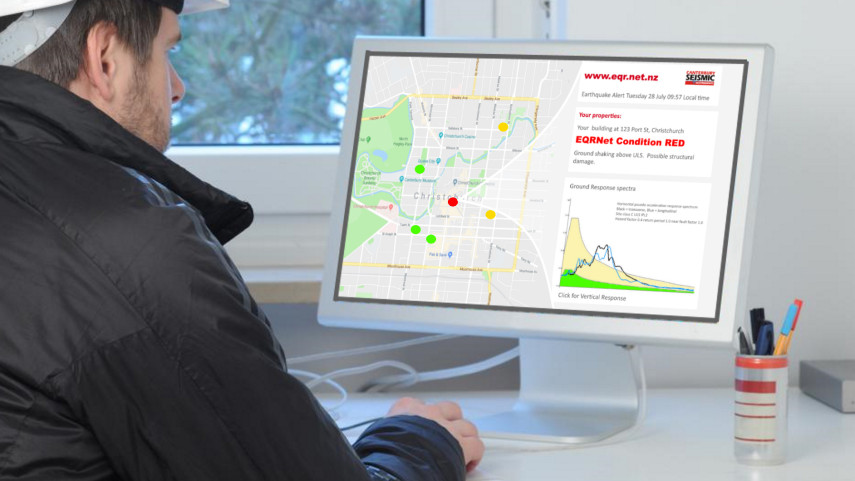
Council nets Smart City accolade with earthquake response

Share this story
An innovative Christchurch earthquake response network, EQRNet, has taken top honours at the IDC Smart City Asia/Pacific Awards (SCAPA).
EQRNet is a dense network of seismic sensors spaced across Christchurch which measures earthquake intensity and delivers immediate information on the likely building and infrastructure response.
The Christchurch City Council has won the Public Safety – Disaster Response/Emergency Management category with the network of more than 150 ground-based accelerometers.
IDC New Zealand Country Manager Louise Francis says “for the Council to be recognised on the international stage – against such steep competition – is a tremendous achievement”.
Christchurch is the only New Zealand representative to join the “SCAPA hall of fame” this year.
In partnership with Canterbury Seismic Instruments (CSI), Smart Christchurch has installed the urban network of seismic sensors to boost the city’s earthquake resilience.
The 150 sensors sit at – or close to – critical infrastructure points across Christchurch.
Developed by CSI, the Council’s Smart Christchurch EQRNet instantly compares localised shaking to every building’s design and the New Zealand Building Code limits.
The network then provides information to building and infrastructure managers, emergency teams and the public, enabling a rapid response to an earthquake.
Smart Christchurch Manager Michael Healy says the Council’s investment in smart technologies – like EQRNet – is making the city a better, safer and more resilient place.
“The creation and success of EQRNet underline the true value of an innovative approach to emergency management,” Mr Healy says.
“It gives first responders the real-time, relevant information they need to prioritise their response and keep people safe.
“The recognition through receiving the SCAPA award shows the value of this Christchurch-based technology – not just to our city, but to other cities across New Zealand and the rest of the world.”
EQRNet also provides valuable data on ground movement across the city to engineers, research organisations and authorities to help understand and enhance the resilience of buildings and infrastructure.
“The EQRNet initiative with CSI takes our data – and the ability to respond to an emergency – to a new level of understanding,” Mr Healy says.
“Decision-makers now have access to immediate information so that they can target the most affected areas and prioritise resources accordingly.”
The SCAPA awards recognise “outstanding Smart Cities projects”, and provide a forum for sharing innovations that boost Smart City development in the Asia-Pacific region.
